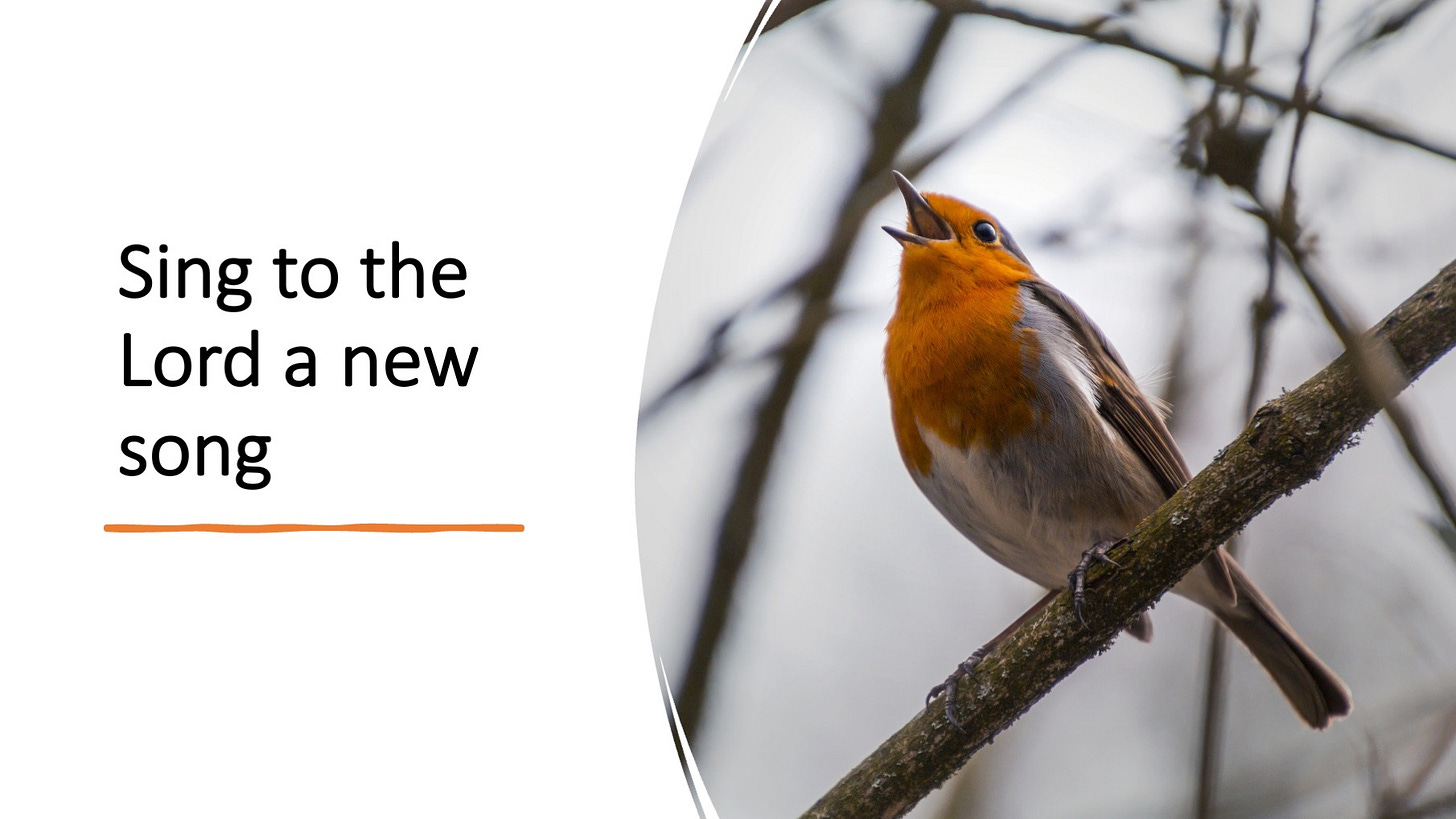Psalm 98 has already been featured on our podcast a few times. It is a hymn that celebrates the reign of the Lord evident in his wondrous deeds. For the people of Israel, the greatest deed of God was God’s victory over the Pharaoh of Egypt and his powerful military forces. When the Israelites saw the Egyptian soldiers dead on the seashore, they were awe-stricken and feared the Lord. Then, both Moses and his sister Miriam sang songs to the Lord praising God for his glorious victory.
The news about God’s victory over the Egyptian army spread around. When the two Israeli spies went to Jericho, a harlot named Rahab sheltered them in her house. She also told them that the inhabitants of the land were terrified of Israelites because they heard “how the LORD dried up the water of the Red Sea before you when you came out of Egypt” (Joshua 2:10).
In the Christian reading of this psalm, we think of the events narrated in the Gospel as the greatest deed of God’s power. But, this time the victory is not won over a despotic human ruler, but over the powerful forces of evil, sin, and death. Jesus’ death on the cross and his subsequent resurrection crushed Satan and his army. Ron Kenoly in his song, “Jesus is Alive” beautifully dramatised the fight that took place between the forces of death and light at that time. With music in the background, he narrates the story of our salvation with these words:
“Satan gleamed with pleasure
That day at Calvary
For he thought he had won
A mighty victory
And like him all of the demons
Of hell began to cheer - haha.
O but little did they know
That their end was growing near”.
“Cause early Sunday morning
Just like Jesus said
He broke the curse
Of sin and death
And He rose up from the dead
Now we have a new beginning
And a kingdom that has no ending
Hallelujah Hallelujah”.
Ron Kenoly drew inspiration for his song from the Scripture where the victory of God over the Pharaoh of Egypt becomes a type of God’s victory over Satan and all God’s enemies. In the Book of Revelation, we see those who conquered “the beast” featured in that book “standing beside the sea of glass with harps of God in their hands” (Rev 15:2). What do they do there? They sing the song of Moses and the song of the Lamb. And what is the content of that song?
“Great and amazing are your deeds,
O Lord God the Almighty!
Just and true are your ways,
O King of the nations!
Who will not fear, O Lord,
and glorify your name?
For you alone are holy.
All nations will come
and worship you,
for your righteous acts have been revealed” (Rev 15:3-4).




